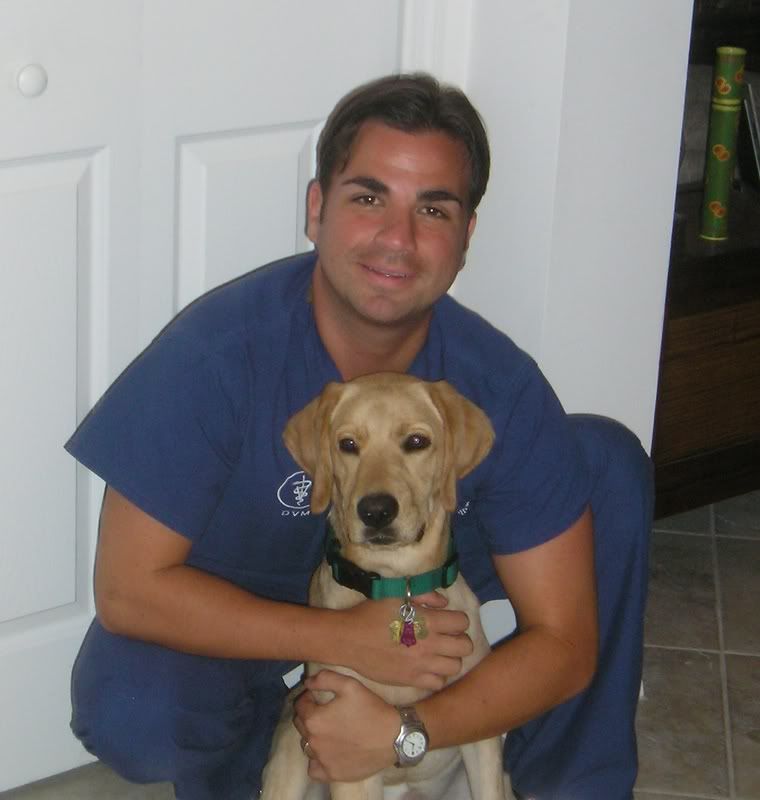Tuesday afternoon, I was presented with a very sick and rapidly deteriorating 13 year old, male, German Shepherd, that ended up with a grim diagnosis of severe chronic renal failure (kidney failure). This left me in the always uncomfortable but necessary position of having to inform the owners who love this dog dearly of their beloved pet's bleak circumstances.
When presented with a patient's diagnosis, my job is to objectively explain to the owners the nature of the disease and its implications, treatment options, risk of treatment versus benefit of treatment, odds of success, and of course cost of treatment. Based on all of this information, it is left to the client(s) to decide on how they wish to have their pet treated or not treated, or to elect euthanasia. While I provide the medically impartial information, it lies solely with the owners to apply their individual feelings about how much to put an animal through and how much they are willing and able to spend, given the probability of of a successful outcome.
In this German Shepherd's renal failure case, the labwork indicated that the likelihood of success with even aggressive treatment was very low. I explained to the owners that out of 10 cases that may present with this patient's set of clinical signs, combined with labwork that indicated severely advanced disease, at best, 2 would yield a favorable result. I then explained that treatment for this disease is not very invasive or painful, and carried no other risk than a more than fair likelihood that it would not work.
At this point, with little hope of success, many owners would elect euthanasia not wanting to prolong their pet's suffering, not willing or able to spend the money for treatment, or combinations of all of these sentiments. Whether this is right or wrong is a very personal decision, not for me to judge or convince them otherwise, but to respect and offer my services to implement their decision.
The owners of this German Shepherd were determined that as long as there were ANY chance, albeit a long shot, they had to at least let me try. Again, whether this was right or wrong is a very personal decision, not for me to judge or convince them otherwise, but to respect and offer my services to implement their decision.
After 2 days of aggressive treatment, the patient's condition has taken a remarkable turn for the better. His vomiting has abated, his spunk has returned, and his appetite fully restored. His follow up labwork indicates kidney values that were back within the normal range. He will likely go home tomorrow, and needless to say, his owners (two very nice ladies), are overjoyed.
In this case, it is easy to look back and say that the owners made the right decision to have the dog treated. In hindsight, it would have been premature to put this dog to sleep. While he is still is in kidney failure with his longevity uncertain, fed a kidney sparing prescription diet, he may hold on for days, weeks, or months to come.
Let me be clear, however, that the moral of this story is not to convince my readers that, given poor prognosis with treatment, that owners should cling to that small bit of hope and always elect treatment. Let us not forget the 8 out of 10 dogs that may present in exact same state as this German Shepherd that would have spent the last 3 days of their lives in a hospital, only to die or be put to sleep anyway.
I offered this little tale instead to simply remind you that when you and your beloved pet are faced one day with similar circumstances, you never know.
Roger L. Welton, DVM
Founder Web-DVM
Thursday, March 6, 2008
Subscribe to:
Post Comments (Atom)




No comments:
Post a Comment